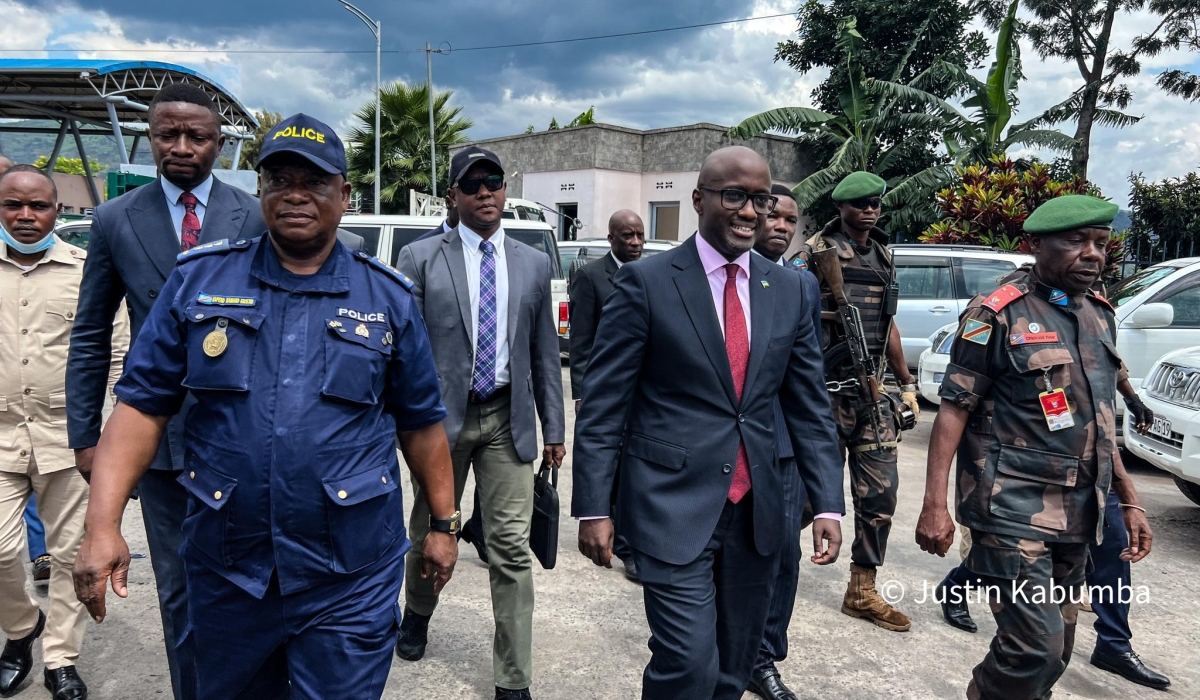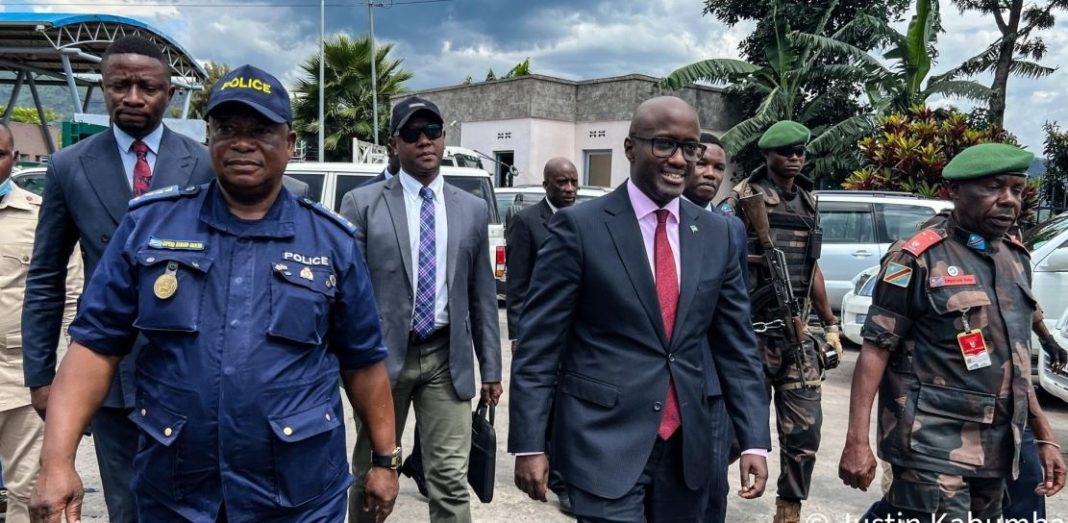On Tuesday, November 5, top diplomatic officials from Rwanda and the Democratic Republic of Congo (DRC) met at their shared border to address ongoing security and diplomatic tensions. The ministers convened in a tripartite ministerial session led by Angola as part of the Luanda Process, an African Union-supported initiative aimed at resolving the security crisis in eastern DR Congo.
Framework of the Luanda Process
The Luanda Process, launched in mid-2022, was designed to mediate the escalating conflict between DR Congo and Rwanda, which was exacerbated by ongoing violence between the Congolese army and the M23 rebels. Under the mediation of Angola, represented by Foreign Minister Téte António, the meeting held at the Grande Barriere—the main border crossing between the two nations—focused on devising strategies for sustainable peace and security.
Tensions Over Alleged Support and Cross-Border Militia
The DRC government has consistently accused Rwanda of supporting the M23 rebels, a charge Kigali strongly denies. Rwandan officials maintain that the crisis is primarily an internal Congolese matter, worsened by issues of governance and the persecution of the Congolese Tutsi community. Rwanda has also raised alarm over the integration of the FDLR (Forces Démocratiques de Libération du Rwanda), a group linked to the 1994 Genocide against the Tutsi, into the Congolese army. The FDLR, a UN-sanctioned terrorist group accused of propagating hate speech and genocide ideology, operates alongside the Congolese army in their fight against M23 rebels, posing a security threat to both Rwanda and the wider Great Lakes region.
The Luanda Meeting and Rwanda’s Three-Point Plan
During an earlier ministerial meeting on October 12 in Luanda, Rwanda’s Foreign Minister Olivier Nduhungirehe presented a three-step approach aimed at resolving the conflict. He highlighted the importance of the DRC taking full responsibility for the crisis rather than attributing it to Rwanda.
- Step One: Nduhungirehe emphasized the need for the Congolese government to acknowledge its role in the crisis, halt its scapegoating of Rwanda in diplomatic forums, and commit to a durable solution.
- Step Two: He called for the genuine demobilization of the FDLR, noting its involvement in the Congolese army and its role in perpetuating genocide ideology and regional instability.
- Step Three: Nduhungirehe urged the disengagement of Burundian troops and the Southern African Development Community (SADC) Mission in DR Congo (SAMIDRC), which he suggested could reduce foreign entanglements and bring the conflict closer to resolution.
Prospects for Peace and Regional Stability
The success of the Luanda Process hinges on the cooperation of all parties involved, with Angola committed to fostering a constructive dialogue. As regional and international actors closely monitor the progress, the tripartite meeting marked another step in what is expected to be a challenging path toward lasting peace and security in eastern DR Congo. Both Rwanda and DR Congo, alongside Angola, have expressed optimism that diplomatic solutions can mitigate long-standing grievances and lead to a stable future for the region.




